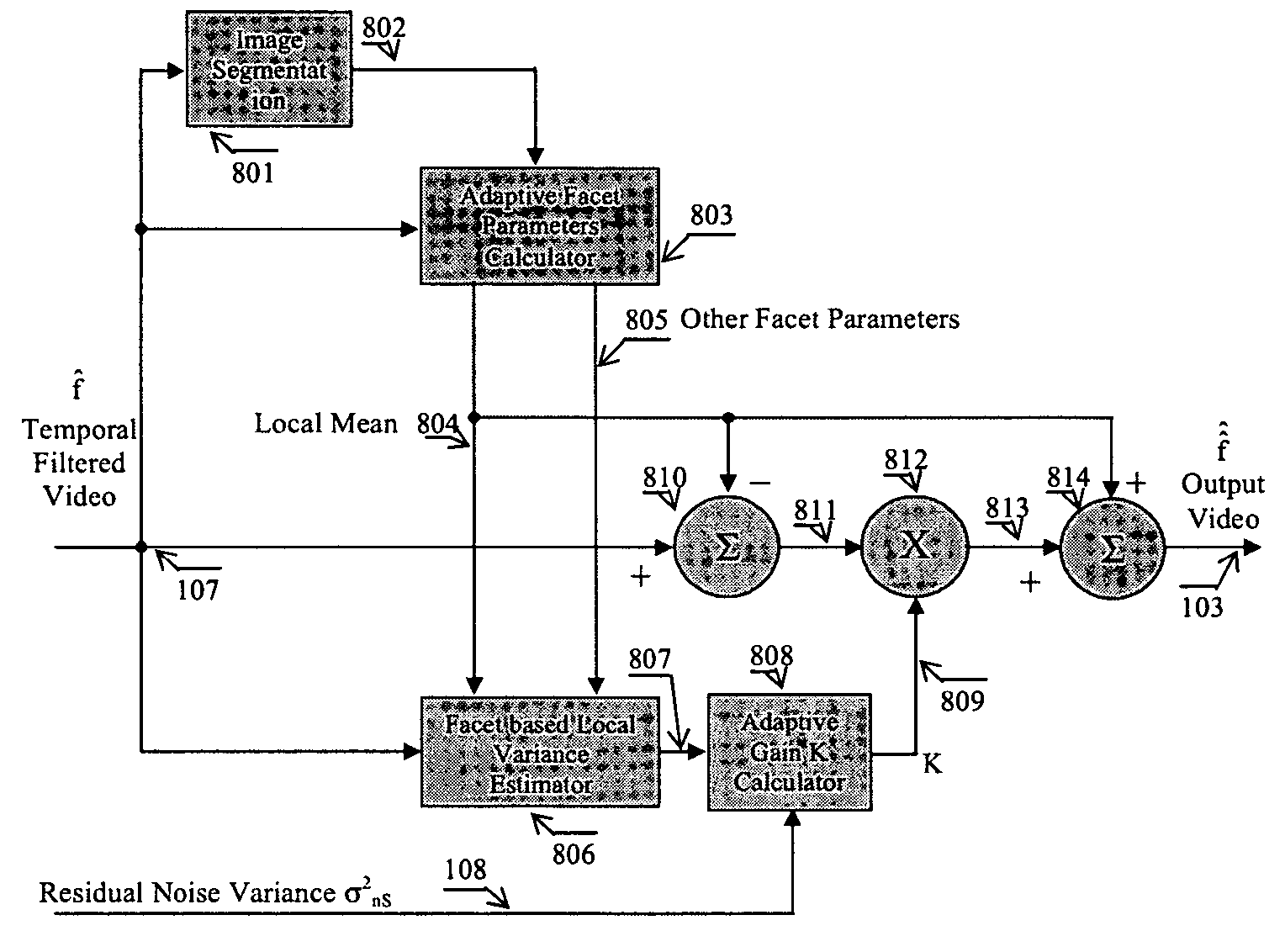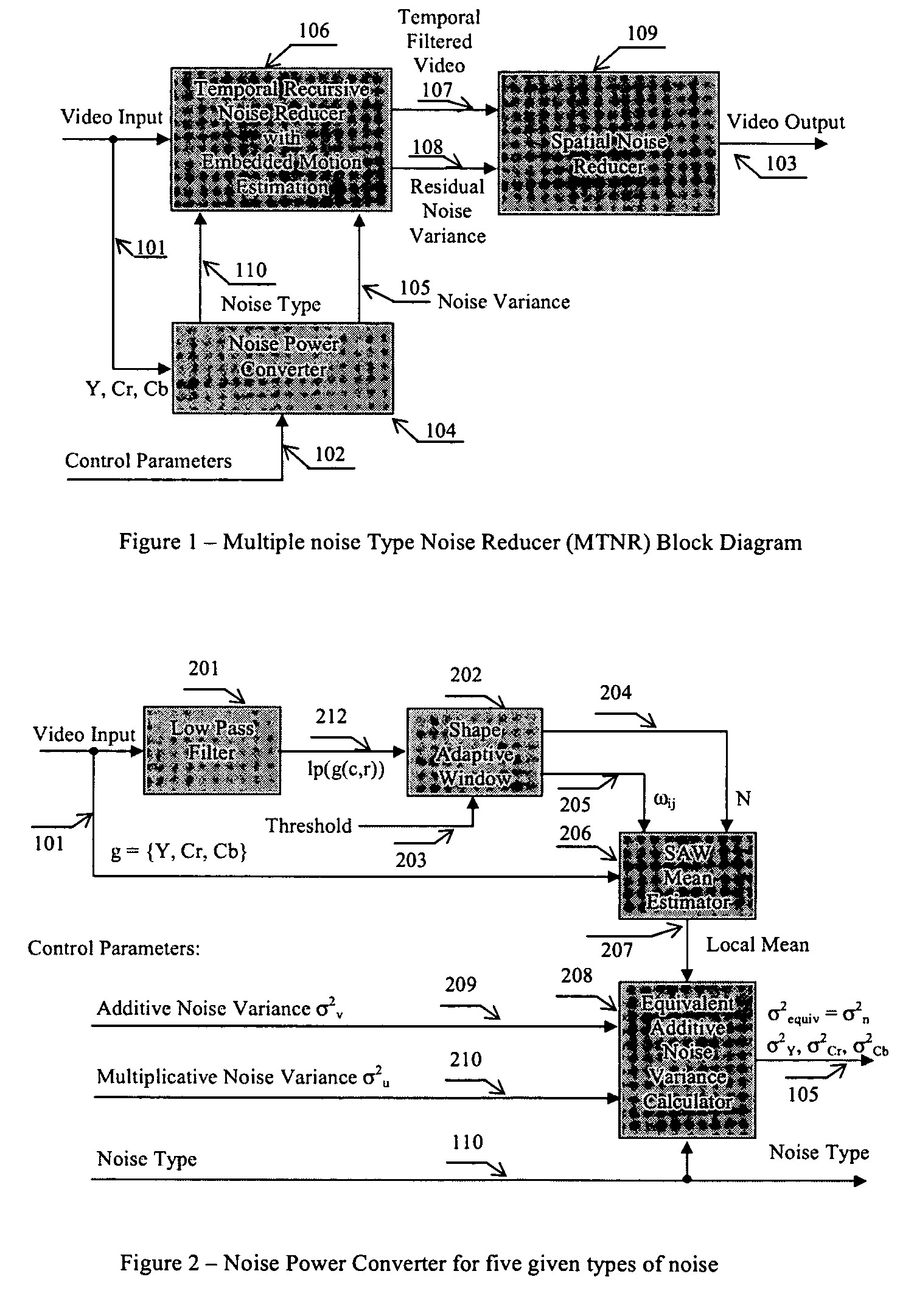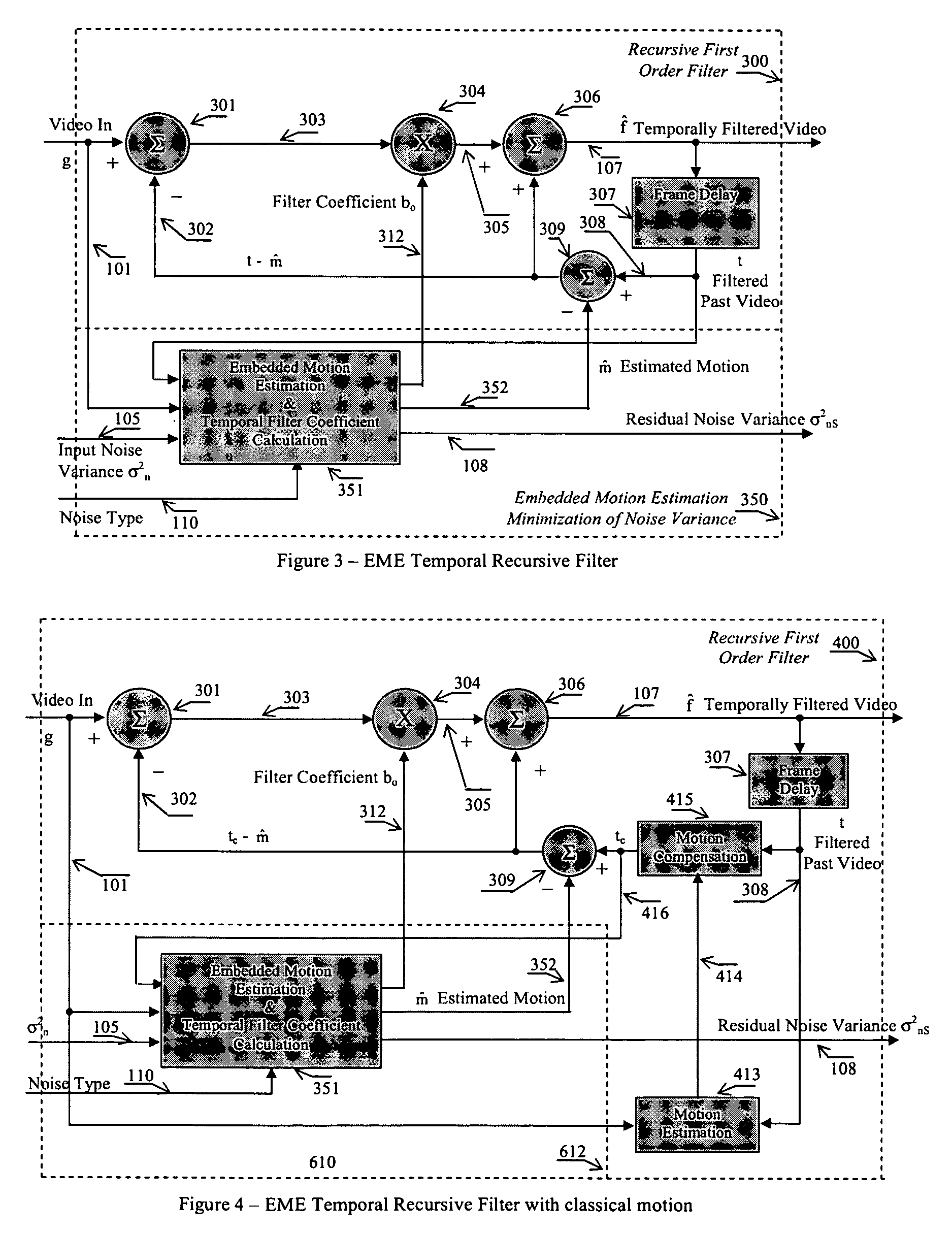Apparatus and method for adaptive 3D noise reduction
a 3d noise and noise reduction technology, applied in the field of image 3d noise reduction techniques, can solve the problems of system cost due essentially to frame memory and motion estimation, the noise variance output at each filter stage is to be costly estimated, and the noise essentially remains in the edge or near edge region, etc., to achieve the effect of reducing multiple noise types, reducing noise, and reducing nois
- Summary
- Abstract
- Description
- Claims
- Application Information
AI Technical Summary
Benefits of technology
Problems solved by technology
Method used
Image
Examples
Embodiment Construction
[0040]Now referring FIG. 1, there is shown an embodiment of a multiple noise type noise reducing (MTNR) apparatus.
[0041]The multiple noise type noise reducing (MTNR) apparatus and method start with two main system input information types. The first video input information 101 is an image video signal composed of luminance Y and chrominance Cr, Cb components. Persons of ordinary skill in the art will understand that, except where indicated differently, such system components may be implemented in a time sharing manner or in parallel as it is well known in the art. The second information corresponds to control parameters which are applied at input 102.
[0042]The control parameters signal at input 102 represent, for five considered types of noise, three additional types of information namely: noise type (number), variance of additive noise and variance of multiplicative noise. In the disclosed embodiment, this information is specified by an end-user in a heuristic manner.
[0043]The multi...
PUM
 Login to View More
Login to View More Abstract
Description
Claims
Application Information
 Login to View More
Login to View More - R&D
- Intellectual Property
- Life Sciences
- Materials
- Tech Scout
- Unparalleled Data Quality
- Higher Quality Content
- 60% Fewer Hallucinations
Browse by: Latest US Patents, China's latest patents, Technical Efficacy Thesaurus, Application Domain, Technology Topic, Popular Technical Reports.
© 2025 PatSnap. All rights reserved.Legal|Privacy policy|Modern Slavery Act Transparency Statement|Sitemap|About US| Contact US: help@patsnap.com



